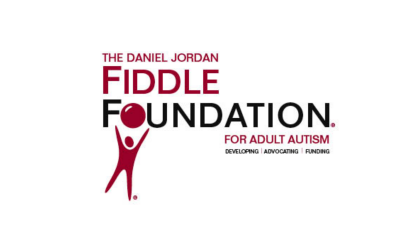Harry Schiffman, LMSW is a lecturer at Rutgers School of Social Work. He explains the significance of Poverty Awareness Month and ways social workers and allied professionals can observe it this month and beyond.
Tell us a bit about your journey to social work.
My journey to social work started as I watched my mother being active in the Borough Park community in Brooklyn where I grew up in the 1950s. She was active in both the synagogue that we belonged to and the yeshiva that I attended. She was always involved in community-wide events and activities.
The 1960s and 1970s were also a time when, as we teach social work students in policy classes, the world started to change. I grew up during the civil rights movement, the anti-Vietnam war movement, women’s rights movement, and the LGBT movement that, to this day, have shaped the United States.
I went to college and received a Bachelor of Science in finance. This was during the anti-war movement that rocked my college and other institutions across the country. In the 1970s, I worked in the banking industry, primarily in the banks’ factoring divisions.
What fueled my journey to social work was the oil embargo in the 1970s. Gas was short, and companies had to close for long periods of time. The bank where I worked insisted that these companies continue to pay their bills even though they were closed and had no money coming in. Many went out of business.
I decided that I wanted to do something different and that the financial world was not for me. This is not uncommon. I have had lots of students over the years who started their careers in another sector but wound up wanting to make a difference and chose to become social workers.
I also knew that I wanted to work in communities, which led me to attend the Hunter College Graduate School of Social Work (now known as the Silberman School of Social Work) because it was one of the only graduate schools in New York City that offered a concentration in community organizing and still does to this day!
My second-year practicum placement was at an agency in Coney Island. By that time, Coney Island had been abandoned by the city and destroyed by urban renewal. Housing developments were built, but there was very little in the way of services. The agency where I worked developed afterschool programs, summer camp programs, economic revitalization projects, and programs to support the local branch of the Brooklyn Public Library. All these programs were designed to attack widespread poverty and disinvestment.
Over the years, I have used my degree and skills to work in communities throughout New York City focusing on the areas of economic development, immigration, youth services, housing, senior services, and health services. I have also been involved in politics, ran for city council, worked for elected officials, and have been active in community-based organizations.
What is the significance of Poverty Awareness Month for you?
Before I was asked to write this submission, I had no idea Poverty Awareness Month existed. I have been a teacher for over a dozen years, teaching at Rutgers, Columbia, Fordham, and Silberman, and this was never brought up. Perhaps because when we start up again at the end of January, we are so immersed in the first weeks of teaching that this has skipped our minds. Or there is not enough awareness of poverty to begin with.
Thinking about it, though, Poverty Awareness Month in January is perfect. We have just finished a holiday season that is hectic and meaningful to lots of people. So, January is a time when we can catch our breath and try and figure out how we can work, even on a small scale, to try and tackle poverty.
How can the social work community recognize Poverty Awareness Month?
We first must recognize that poverty is a result of inequality and discrimination. In doing so, we shift the blame from the individual to society. Then, we can start to address the causes of poverty, including low-paying jobs, poor education, unaffordable housing, and poor to nonexistent health care and food choices.
To recognize Poverty Awareness Month, the social work profession needs to do a better job of marketing across both traditional media and social media. We need to highlight issues such as food insecurity, homelessness, the school to prison pipeline, and the wealth gap on local TV and press, to name a few.
We need to be able to humanize poverty and try and tell the story that poverty impacts everyone. As an example, the Washington Post recently ran an article on the “SNAP Gap,” and that Instacart teamed up to provide food assistance to families that fall in the gap between the federal Supplemental Nutrition Assistance Program (SNAP) and full self-sufficiency. The article highlighted Fallon Shoemaker’s falling into the self-sufficiency gap, a growing segment of the population that earns too much to qualify for SNAP but not enough to avoid being thrown into crisis by an unexpected expense, such as a flat tire or a medical emergency.
In New Jersey, there are two specific programs that fight poverty that need to be publicized. The first is the State Rental Assistance Program (SRAP). This program is “a state funded program that provides housing subsidies on behalf of very low-income New Jersey residents, for decent, safe and sanitary housing. People applying must meet all applicable SRAP income and eligibility requirements. A total of 6,000 households will be selected through a lottery system to be placed on the SRAP waiting list.” The application period is from Monday, January 13, 2025, at 9:00 a.m. until Friday January 31, 2025, at 5:00 p.m. Eastern Time.
The second is the Earned Income Tax Credit (EITC), which, according to the Center on Budget and Policy Priorities, is a federal tax credit for working people with low and moderate incomes. It boosts the incomes of workers paid low wages while offsetting federal payroll and income taxes. Also, the IRS website has lots of information and marketing materials promoting the EITC.
We should also be working with our elected officials to hold Poverty Awareness Month events in their districts. This could include hosting coat drives or bringing a group of constituents to volunteer at a soup kitchen. Elected officials should also hold hearings to highlight poverty in their districts.
What can the social work profession or social workers do to continue to support the importance of Poverty Awareness Month beyond the month?
The social work profession should make it their business to fight poverty and spread awareness of poverty all year round. What can we do? We need to continue to work to alleviate poverty on a national level. We can do this by advocating for Congress to expand the Child Tax Credit and the EITC to the levels that were in place during the height of the COVID-19 pandemic. Why? Because the enhanced Child Tax Credit led to a historic drop in childhood poverty to 5.2% and the expanded EITC also impacted poverty levels. We also need to advocate for more money for housing, education, health care, and food support, just to name a few. How about a universal basic income (UBI) or reparations?
Let us be honest: what is really needed is an increase in the minimum wage as well as relooking at how we tax the rich and corporations.
Of course, poverty also needs to be addressed at the state and local levels. We need to work with our elected officials and other stakeholders (e.g. faith-based institutions to address poverty state by state). What is needed in New Jersey? New York? Pennsylvania? How can the Rutgers School of Social Work take the lead in addressing poverty? Do we need better housing? Better health care? Better job training? Better education for all? And even on a state or local level, how about a pilot UBI in a city or town in New Jersey?
But these are all solutions that will take a long time. Most of the students in my class on Poverty, Inequality Discrimination, and Public Policy say to me, “These will never happen,” or, “It will take too long,” and they figuratively throw up their hands. I tell them that there are steps they can take to alleviate poverty. These suggestions come from a great text called New Perspectives on Poverty by Elissa Giffords and Karen Garber. At the end of the text they list 21 things that we can do to attack poverty, including: volunteer at a soup kitchen, mentor a child at risk of poverty, donate professional clothing to an organization, sponsor a food drive, and prepare and deliver meals to the homeless. More often than not, my students will add to the list!
This story was created in partnership with Rutgers School of Social Work's Inclusion, Intersectionality, Diversity, Equity, and Advancement (IIDEA) Committee.



